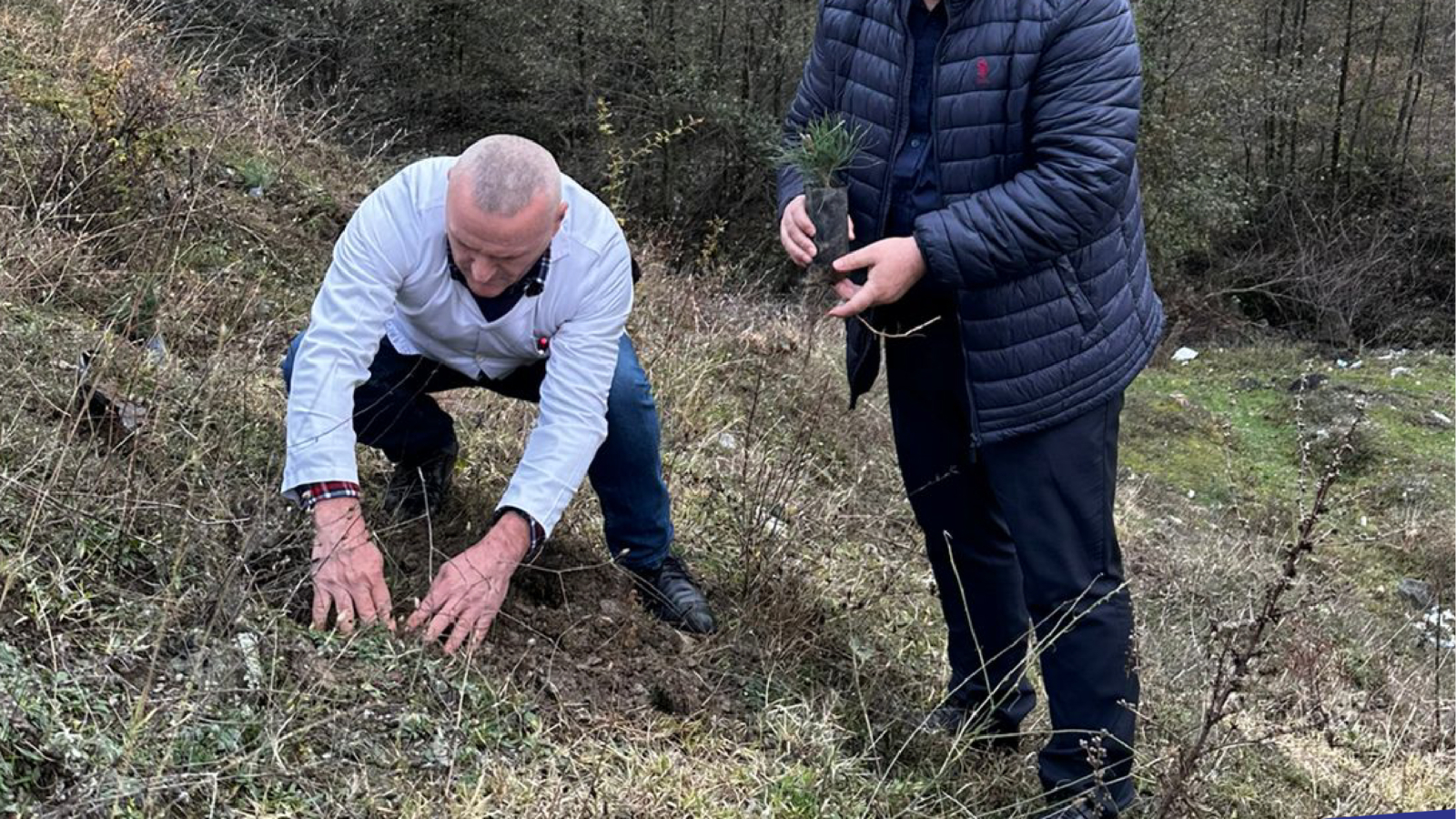Five hundred pine tree saplings were planted in Topojan, as part of SIRA’s “Community engagement and decision-making for the protection of the Luma River in Kukes” project. Throughout this activity, the rehabilitation of a degraded area was carried out by planting 500 black pine saplings. The ground was prepared during the first week, and then the team of volunteers planted black pines in the second week despite the fact that the temperatures were dropping quickly. The saplings were planted in a separate steep territory allowing SIRA to monitor the growth rates easily. Support and involvement of the local community was crucial for this sustainable reforestation project.
Serving as an impactful awareness campaign, the initiative aimed to instill a sense of accountability among citizens towards the preservation of these areas. Planting a pine tree goes beyond a simple action, its importance extends far beyond what meets the eye. Trees play a vital role in preserving biodiversity by creating habitats for countless species and maintaining the balance of our ecosystems. The young participants engaged in planting the saplings attentively listened to representatives from the SIRA organization, who spoke about the significance of the environment in shaping the quality of life. A clean and healthy environment directly impacts the physical and mental well-being of individuals. Access to clean air, water, and green spaces contributes to a healthier lifestyle and a focus on environmental sustainability ensures the longevity of resources for future generations. The youth took on the responsibility to ensure that this territory receives the necessary attention to avoid any harm during the growth of the saplings.
The adverse effects of forest damage in the mountainous areas resonate deeply, impacting both the lives of the local inhabitants and the economic stability of the area. The organizers highlighted that their objectives extended beyond mere conservation, they aspired to effectively manage and utilize natural resources to ensure a sustainable tourism sector in the region. Non-interference in the Luma River opens up opportunities for the youth to establish new businesses, especially in agrotourism.








